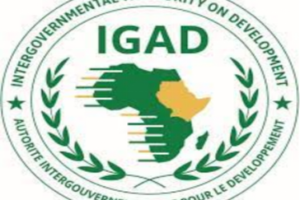In the face of globalization’s ever-increasing influence on economies worldwide, the dynamics of international trade and financial systems have resulted in a delicate balancing act for countries like Ethiopia. As a developing nation seeking to strengthen its economic sovereignty and reduce vulnerability, Ethiopia finds itself caught between the realm of dollar diplomacy and the unstoppable global trend of de-dollarization.
Dollar diplomacy, often associated with the United States, refers to the utilization of a strong currency, such as the US dollar, as a tool for exerting influence over foreign nations. Offering numerous benefits and opportunities, this approach has enabled countries to establish economic partnerships, attract foreign investment, and secure loans on favorable terms. However, sometimes extreme reliance on a foreign currency also exposes nations to geopolitical risks, economic instability, and limited control over their financial policies. Ethiopia, a historically sovereign nation striving for economic self-reliance, has begun to question the long-term impacts of continuing with dollar dependency.
Despite its positive impacts, Ethiopia and other developing countries have faced several challenges and potential risks associated with dollar diplomacy. A heavy reliance on foreign investments has increased the vulnerability of the country’s economy to external shocks. Fluctuations in global markets or changes in the political landscape of donor countries may affect the stability and sustainability of investments, leading to economic uncertainties.
The influence of foreign powers in the form of the dollar diplomacy can sometimes undermine local autonomy and decision-making processes. Critics argue that this policy may prioritize foreign interests over domestic needs, resulting in a loss of economic sovereignty and limited control over resources.
In addition, the conditionality attached to financial aid and investments often requires adherence to certain political and economic policies, which may not always align with the country’s long-term development goals. Striking a balance between national interests and the demands of foreign powers becomes crucial to maximizing the benefits of dollar diplomacy without compromising the country’s sovereignty.
In spite of this, many African and developing countries are struggling with a shortage of foreign currency. In this scene, the current game-changing bloc called BRICS is presented as an alternative choice. So many countries have submitted their requests to join the bloc hoping that they would find an alternative partner and curb their shortage of foreign currency.
The reason countries have eyes on the BRICS is its currency swap agreements. The bloc countries have signed various currency swap agreements among themselves. These agreements allow for direct currency exchanges, bypassing the need to use the US dollar in bilateral trade.
Also, establishing financial institutions like the New Development Bank (NDB) and the Contingent Reserve Arrangement (CRA) to provide financial support to member countries and reduce reliance on traditional western-dominated institutions like the International Monetary Fund (IMF) and the World Bank these institutions aim to promote the use of their national currencies in lending and borrowing transactions.
Moreover, BRICS countries have been working on establishing alternative payment systems that are independent of the US-dominated financial infrastructure, such as the Society for Worldwide Interbank Financial Telecommunication (SWIFT) system. This allows for more secure and efficient cross-border transactions without relying on US dollars. All these things may be a beacon for African countries, including Ethiopia, in terms of the stability of their economic and political crises that happened due to the dollar diplomacy policy.
In a similar vein, the de-dollarization agendas of different countries may promote the development of local industries and enhance foreign direct investment. With a more stable and predictable exchange rate, reducing the risks associated with currency fluctuations. This stability, combined with the reduced costs of currency conversion, makes the countries an attractive destination for foreign investment, potentially stimulating economic growth and job creation.
However, despite the numerous potential benefits, de-dollarization also presents its own set of challenges. A sudden withdrawal or reduction in the use of the US dollar may create short-term liquidity issues, particularly for businesses and individuals heavily dependent on the dollar.
Commenting on the issue, History and International Affairs Assistant Professor at Dila University, Abdulhamed Ali (Ph.D.), told The Ethiopian Herald that the aim of dollar diplomacy is to make the US dollar influential on the international economic stage, and it has also achieved its goal. The currency still has economic, political, and military influences, especially in Ethiopia and other developing countries. After the end of the Cold War, dollar diplomacy played an indispensable role in bringing different countries under US influence. “I believe that dollar diplomacy is still the strongest channel of diplomacy on the international diplomatic stage,” he said.
The Second World War affected the European economy even after it ended. In this season, the impact of the dollar was very powerful. So, to overcome this influence, they established the EU and a common currency called the euro, which is accepted in 20 of the 27 EU countries. These days, in the international economic sector, the euro is also influential, next to the US dollar. So, the euro is an economic mechanism that prevents the influence of the dollar in Europe, he added.
According to Abdulhamed, the newly emerging bloc called BRICS is also vying for the dollar. In the process of de-dollarization, the BRICS would pose another threat to the dollar. Around 19 countries, including Ethiopia, have submitted their requests to join the bloc, so if these countries join BRICS and create a new currency, the de-dollarization process would get its pick.
Also, if Ethiopia joins the bloc, it will have both opportunities and challenges. In the past two years, the country has been in conflict, and during that time, the country’s relations with some countries in the West have been strained. Foreign influence and economic sanctions have hit the country. However, the country is working to develop its economy. And, it is on its way to joining BRICS and becoming a multi-partner in both the economic and political stages. However, the country’s journey to join this bloc may face delay because of negotiations with the World Bank and IMF.
Also, if the country is using the alternative currency of the BRICS, it may decrease foreign direct investment from the West. However, as a strategic country, the West does not want to lose Ethiopia because that would mean losing all of Africa, especially the Horn. Also, if Ethiopia gets an alternative currency, its economic and political crises may be less severe, he elaborated.
Contradictorily, some economic analysts advise that countries, besides seeking an alternative currency, must increase their export products. Also, it is the best way to prevent the influence of the dollar, even though it is important to calm down their internal economic and political crises. This is because if any country is strong in its production, internal affairs, and diplomatic relations, nothing can threaten them. The analysts also stress that joining different economic, political, or other blocs is not a guarantee of stabilizing their internal or external affairs but rather strengthens their unity and hardworking culture.
BY EYUEL KIFLU
The Ethiopian Herald July 20/2023





